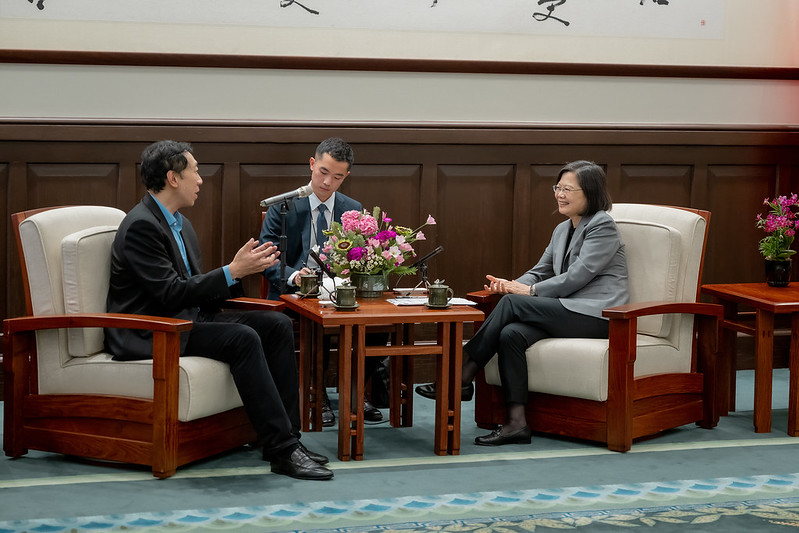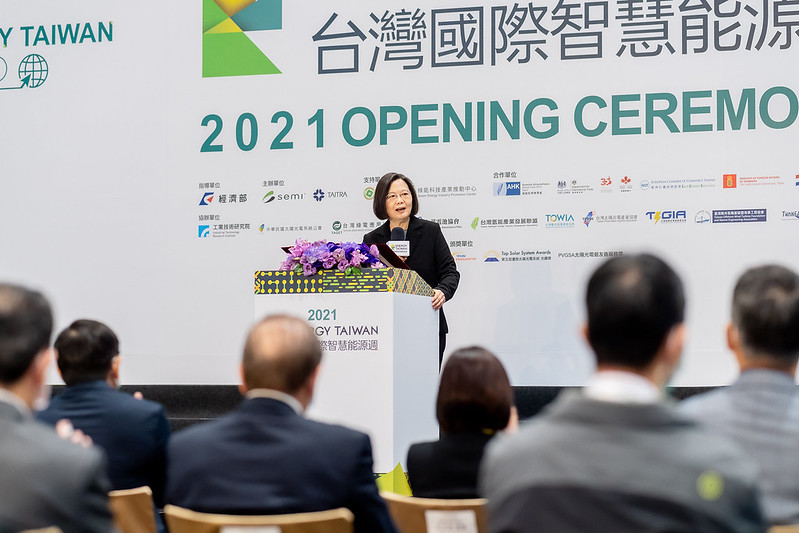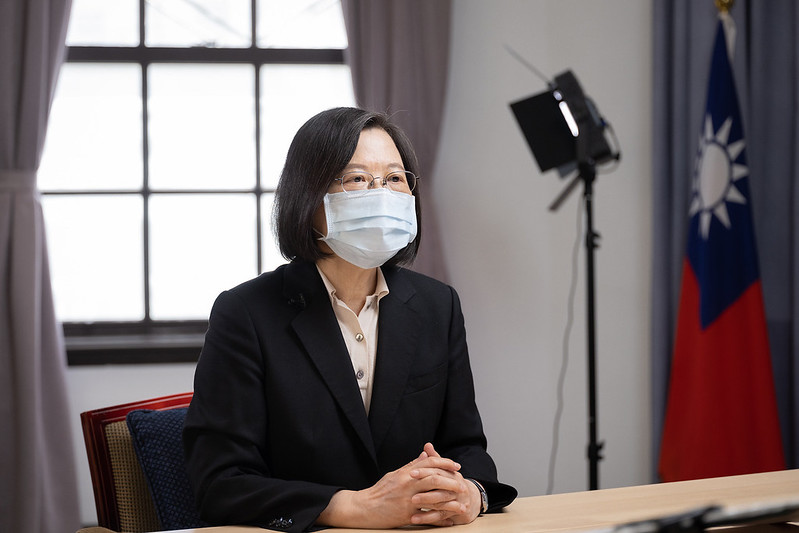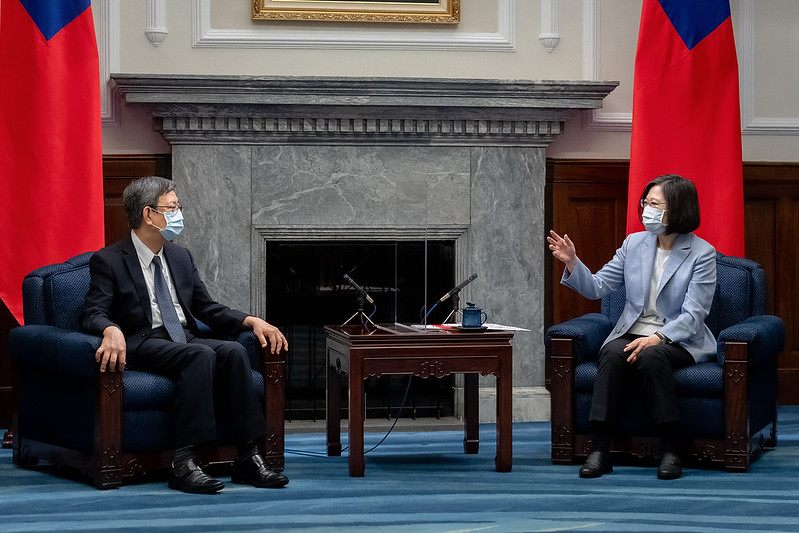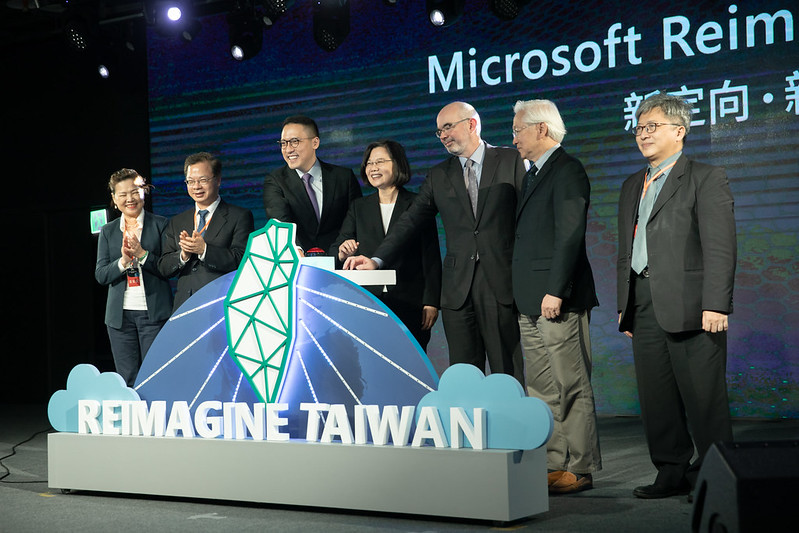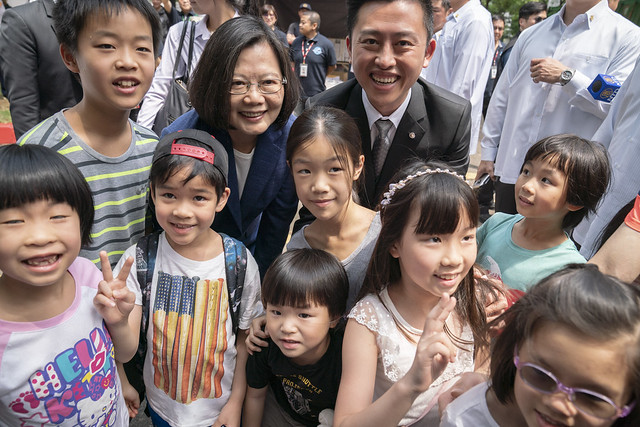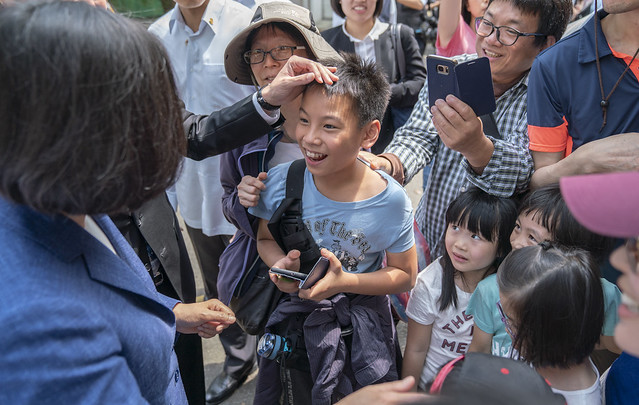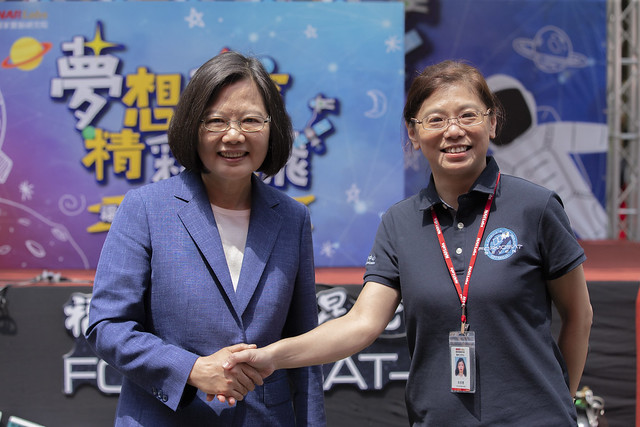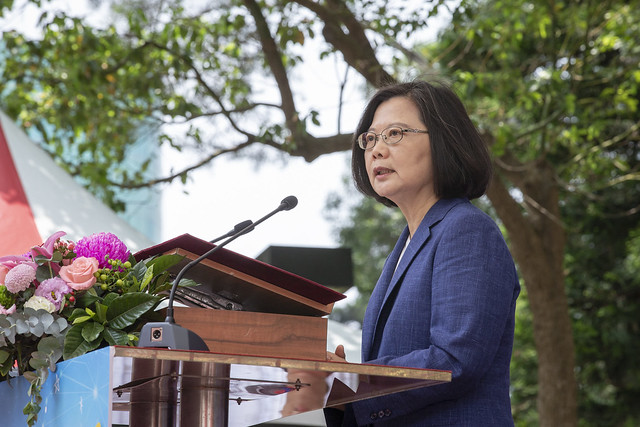News & activities
 News releases
News releases
President Tsai Ing-wen traveled to Hsinchu City to take part in send-off activities for the Formosat-7 satellite on the morning of April 14. In addition to commending the hard work and accomplishments of the entire research and development team over the years, President Tsai also hailed Formosat-7 as a milestone in promoting Taiwan's technological diplomacy, noting that she expects it will display the brilliance of Taiwan's aerospace technology on the international stage.
In her remarks, the president indicated that just a few days earlier, Taiwan's Academia Sinica joined a multinational research team in releasing the first-ever images of a black hole. This is a momentous scientific advance, she noted, one in which Taiwan played a key role.
President Tsai said that today there was another bit of exciting news in Taiwan. Thanks to the efforts of the National Space Organization (NSPO) team, Formosat-7 would soon be shipped to the United States to prepare for launch, and a "Formosat" satellite would once again be launched into space.
The president said she clearly remembered that, after the launch of the Formosat-5 in August 2017, we encountered many challenges, but we overcame them one by one and successfully captured an image of Taiwan from space. She noted that this image is a source of pride for Taiwan, and that the stories of all the tears, sweat, and laughter during the process would make a great movie.
President Tsai noted that on June 22, we will again be launching a new satellite, and that the Formosat-7 will undertake meteorological observations free from the restrictions of geography or weather, enabling us to obtain even more accurate meteorological data. In particular, given Taiwan's needs, Formosat-7 will focus especially on observations of the Earth's low-latitude regions. She said that in the future, the accuracy of forecasts for intense weather events such as typhoon paths, seasonal rains, and powerful storms will be greatly enhanced, providing more effective protection for Taiwan's environment.
The president emphasized that Formosat-7 is also a milestone in Taiwan's technological diplomacy. Research and development of the Formosat-7 satellite constellation was the result of the largest-scale project in the history of scientific cooperation between Taiwan and the United States, and the observational data obtained by the satellite can be shared with other nations for the benefit of mankind as a whole. She noted that these achievements were good news that will inspire Taiwan. She gave high praise to the achievements of the NSPO, and thanked all the teams that participated in the project for their efforts.
The president said that to go into space, view black holes, explore the vastness of the universe, and unravel more scientific mysteries are dreams held by the people of Taiwan, and all of mankind. She said that with our scientific and technological prowess, we possess excellent qualifications to pursue such an outer-space dream. Therefore, the first official document that Executive Yuan Premier Su Tseng-chang (蘇貞昌) signed this year was to approve the third National Space Technology Long-Term Development Program for a period of ten years, with a planned budget of NTD$25.1 billion.
President Tsai pointed out that we must continue to enhance our independent space research and development capabilities, remain on the cutting edge, and take full advantage of the benefits of the aerospace industrial chain. She noted that the systems design, ground control planning, and data processing for Formosat-7 were all completed in Taiwan, which is important for making our space endeavors economically efficient.
Finally, the president noted that Formosat-7 will embark on its journey to the United States tomorrow, and she wished a smooth launch in advance for the six satellites of the Formosat-7 system. She said that Taiwan's space dream, and Taiwan's prowess in space technology, would definitely shine brilliantly on the international stage. Let us all keep up our efforts, and continue to dream big, she said.
Shortly after, President Tsai joined the guests present in the send-off ceremony, and viewed the satellite's carrier as it began its journey.
At the conclusion of the ceremony, the president spoke to the media present. She said that she was in Hsinchu today to jointly witness the official send-off for Formosat-7 as it travels to the United States for its later launch. The purpose of her visit was twofold, she said: she wanted to pay witness to Taiwan's technological achievements, and at the same time, give encouragement to the entire team that worked on the project. She said that the team's work was grueling, because they were shouldering responsibility for Taiwan's space dream. For the people of Taiwan, reaching space was once a far-off dream, but now we can see that it is actually achievable. The fact that our scientists can make contributions to science in outer space is something that should be exciting to all the people of Taiwan.
The president pointed out that Taiwan plays a key role in many areas outside of space science as well. For example, Taiwan's presence plays a key role in the geopolitics of the Indo-Pacific region. She expressed her belief that all of Taiwan's people feel the same excitement and pride that she does.
President Tsai said that in addition to securing our nation's security and prosperity, she hopes our nation's people can go out into the world and feel a sense of pride and honor in being Taiwanese.
In response to questions regarding the government's efforts to bolster the economy, President Tsai indicated that we have been taking concrete actions. There are many obstacles to overcome, and we must mobilize the entire strength of the nation to help businesses overcome the various difficulties they face.
The president pointed out that Taiwanese firms were returning to Taiwan at a rapid rate, and on a large scale. Current cumulative monetary figures stand at nearly NTD$120 billion, creating more than 10,000 job opportunities, and the number continues to increase. At the same time, foreign firms continue to increase their investments in Taiwan, while also continuing to train Taiwanese technical personnel, since they believe in the top-notch quality of Taiwan's workforce.
The president emphasized that these things are happening because the government's policies are correct, giving people confidence in Taiwan's government as well as confidence in our investment environment. She said that is why we have recently seen Taiwanese firms returning, and foreign firms increasing their investments in Taiwan.
Attendees included Legislator Ker Chien-ming (柯建銘), Minister of Science and Technology Chen Liang-Gee (陳良基), Hsinchu Mayor Lin Chih-chien (林智堅), Hsinchu County Magistrate Yang Wen-ke (楊文科), National Applied Research Laboratories President Wang Yeong-her (王永和), and NSPO Director General Lin Chun-liang (林俊良).
